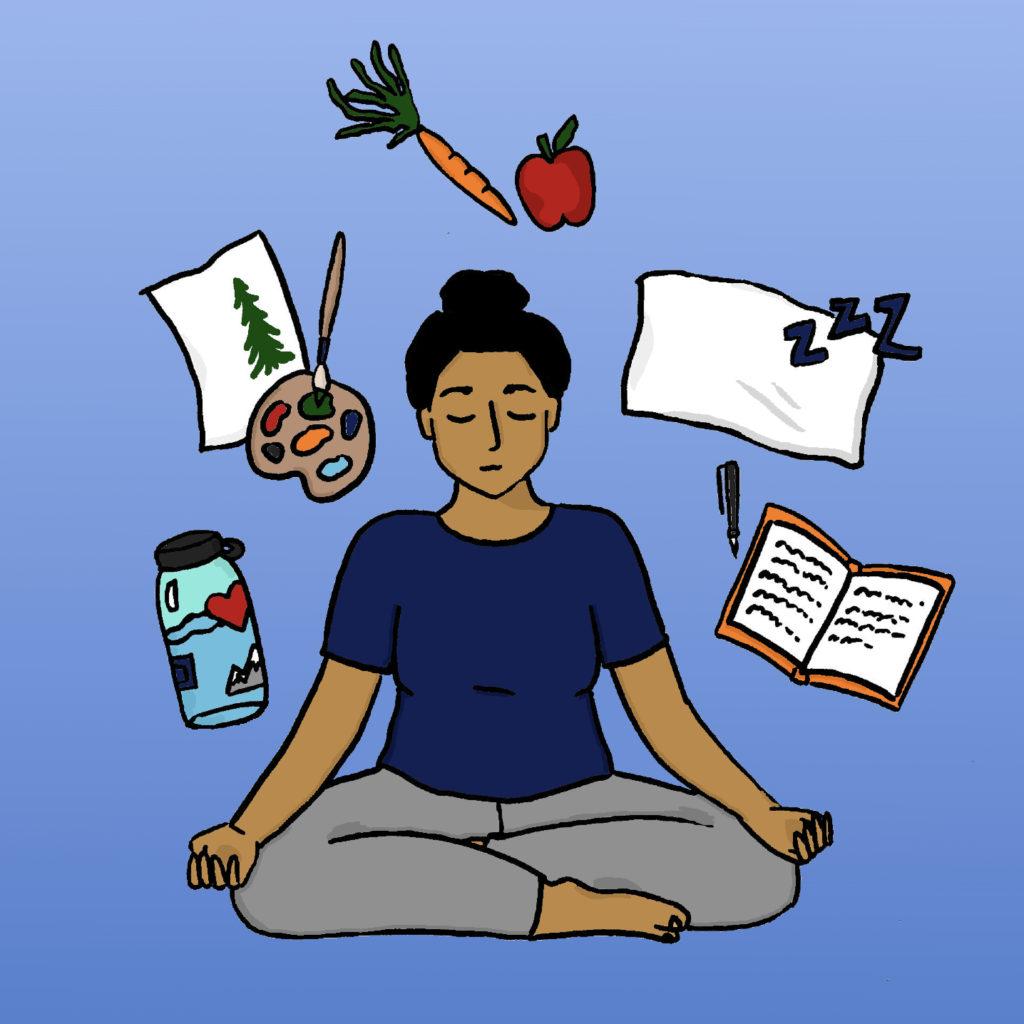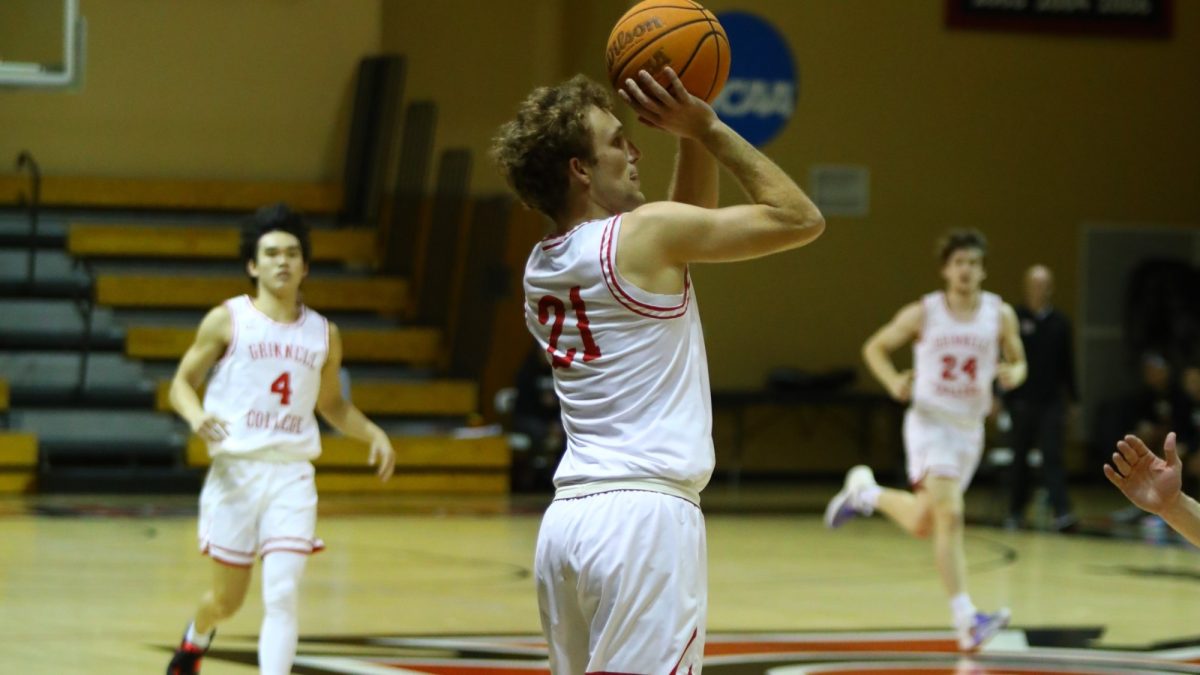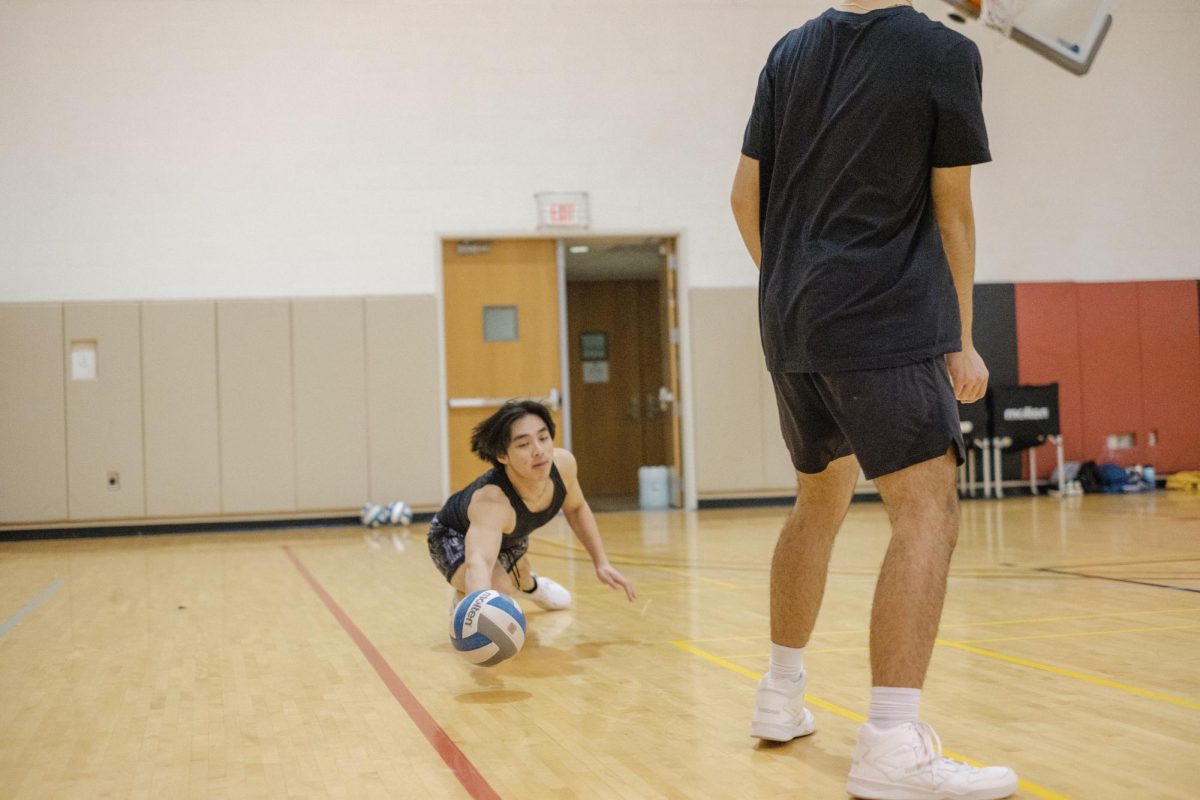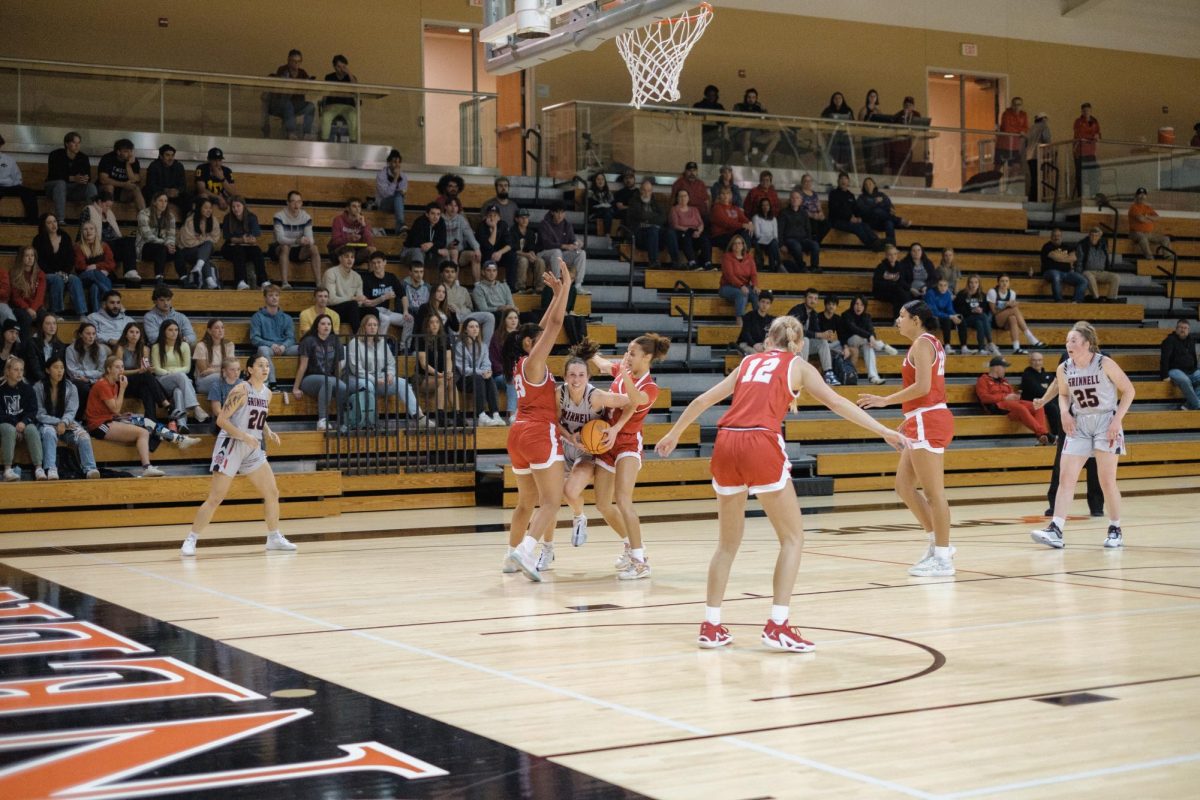Grinnell College, like any other college, is not stress-free. Juggling schoolwork can be difficult and adding clubs, work and sports can exacerbate the pressure. The College offers resources for students struggling with mental health such as Student Health and Wellness (SHAW) counselors and has recently started school-wide mental health days called “Working Differently Days.”
In an effort to create a healthier environment, many Grinnell students have also taken mental wellness into their own hands.
Technically, all of the school’s health resources are concentrated through SHAW. Along with counselors, SHAW also has a psychiatrist available to students. Unfortunately, SHAW counselors are not frequently accessible due to a shortage of counselors and there is typically a wait time of two weeks to make an appointment, according to Athena Frasca `23, a Community Advisor (CA) and Student Athlete Mentor (SAM) for the track and field team.
Grinnell also has a student-run chapter of the National Alliance on Mental Illness (NAMI), which is currently overseen by co-vice presidents Nina Takashima `24 and Dorothy Anna Russell `24. The aim of the club is to raise awareness of mental health issues and provide support for students who are struggling with their mental health.
“We try to spread mental awareness about mental health issues and not just like expanding awareness but just putting it out there that it’s okay to be mentally unstable,” said Takashima. “Not even if people aren’t diagnosed with mental illness, or whatever, there are days when you might not feel as great, or you know, there’s ups and downs. … And there are ways to move forward with that.”
NAMI plans weekly activities during the semester to help students relax and relieve stress. “We’ve done yoga to kind of destress, like meditation, even some arts and crafts things. Like tonight, we’re going to make some Valentine’s Day cards,” said Takashima.
In addition to clubs that focus on mental health, there are also SAMs and CAs, who are trained in the mental health resources offered on campus.
“SAMs are trained in campus resources and crisis management and also. just like lending a helping hand or like shoulder to lean on for their teammates,” said Frasca.
SAMs are meant to be a support that can guide students to the available resources while CAs help students personally. The role of a SAM is often confused with the responsibilities of a CA. “We’re not really supposed to be like therapists or counselors. And we don’t play the role like CAs are often compared to SAMs in that like, we kind of have the same training, but CAs are meant to kind of like sit and talk more,” said Frasca.
Through Frasca’s work as a CA, she has noticed that a major barrier for students is having to call SHAW or go into the SHAW center to ask to meet with a counselor. “I wish you didn’t have to call to make an appointment with the counselors. I’m also a CA and that’s something that stops a lot of people in my experience from like doing it themselves,” she said. “It’d be really nice to be able to sign up online.”
The need for SHAW counselors may be exacerbated by the amount of academic stress at Grinnell along with the isolated area in which Grinnell resides. “We have a lot more work than many of our peer institutions, from what I understand. And we’re in the middle of nowhere, there is less social stuff,” said Frasca.
Many Grinnellians also feel pressure to do well in school and extracurricular activities, which adds to the stress. “I feel like a lot of the students at Grinnell maybe like have like internalized stress. Maybe it’s their pressure being themselves to do well in school to do well in sports,” said Takashima. “I think it’s more like an internal like personal thing. Rather than like the community putting stress on people.”
Although mental illness continues to be stigmatized, Frasca notes that Grinnell does try to maintain an open and attentive mental health culture. “I think Grinnell is really unique in that we are very open about talking about it [mental health]. Of course, though, there is plenty of room to grow.”
If you or a friend is struggling, you can reach out to trained student advocates using their live chat feature or call the Crisis Intervention line at any time (1-800-270-1620).





























































